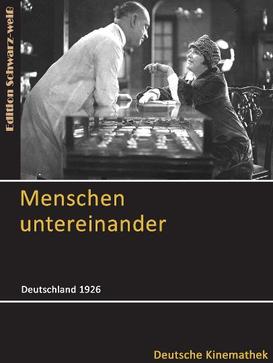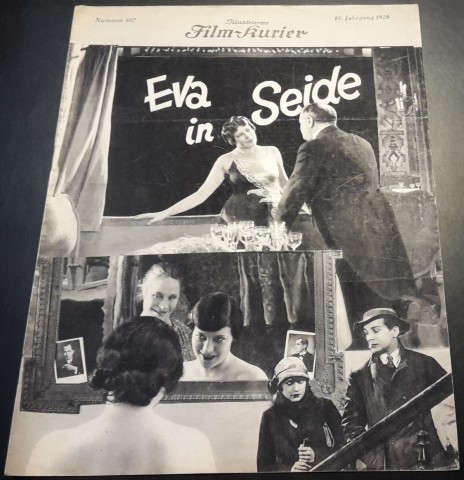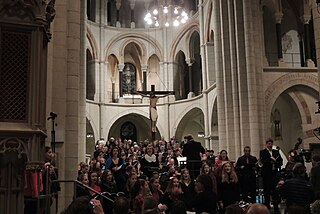Schlegel is a German occupational surname. Notable people with the surname include:

Olga Limburg was a German theater and film actress. She began her artistic career in 1901 with a commitment at the Municipal Theatre of Poznan. Since 1902, she played at several of Berlin's leading theaters including the Tribune, the Metropol Theatre, Berlin Lustspielhaus, the comedy and the Theater am Kurfürstendamm. During the early part of her theater career, Limburg usually played supporting roles. Later she worked in the "comical oldies" plays.

Margarethe Sylva Elisabeth Wisniewski, known professionally as Margarete Schlegel, was a German theatre and film actress and soprano operetta singer.

The Ancient Law is a 1923 German silent drama film directed by E. A. Dupont and starring Henny Porten, Ruth Weyher and Hermann Vallentin. The son of an Orthodox Rabbi faces hostility from his father when he decides to become an actor.

Olaf Storm, pseudonym of Kurt Theodor von Kann was a German film actor of the silent era. Storm was a star of early German cinema, playing the lead in films such as The Stranger from Alster Street and had his own production company Olaf Film. He also appeared in supporting roles in The Last Laugh and Metropolis.

Madame de La Pommeraye's Intrigues is a 1922 German silent film directed by Fritz Wendhausen and starring Olga Gsowskaja, Margarete Schlegel and Grete Berger. The film was produced by Russo Film, a short-lived company backed by Decla-Bioscop which aimed to adapt literary works for the screen. The film was released shortly after Decla-Bioscop had been absorbed into the larger UFA group. It was based on a story by Denis Diderot. It premiered at the Tauentzienpalast on 20 January 1922.
The Humble Man and the Chanteuse is a 1925 German silent film directed by E. A. Dupont and starring Lil Dagover, Olga Limburg and Margarete Kupfer. It was based on a novel by Felix Hollaender.

People to Each Other is a 1926 German silent film directed by Gerhard Lamprecht and starring Alfred Abel, Aud Egede-Nissen, and Eduard Rothauser. The film's art direction was by Otto Moldenhauer.

Target in the Clouds is a 1939 German drama film directed by Wolfgang Liebeneiner and starring Albert Matterstock, Leny Marenbach and Brigitte Horney. It was based on a novel by Hans Rabl. The film portrays the struggles of the fictional German aviation pioneer Walter von Suhr, an officer in the pre-First World War German army who saw the potential for military aircraft.

Eva in Silk is a 1928 German silent film directed by Carl Boese and starring Lissy Arna, Walter Rilla and Margarete Kupfer. It was shot at the National Studios in Berlin. The film's sets were designed by the art director Karl Machus.

Helmut Alfons Schlegel is a German Franciscan, Catholic priest, meditation instructor, author, librettist and songwriter. He is known for writing new spiritual songs, set to music by various composers.

Laudato si' is an oratorio composed in 2016 by Peter Reulein on a libretto by Helmut Schlegel. Subtitled Ein franziskanisches Magnificat, it includes the full Latin text of the Magnificat, expanded by writings of Clare of Assisi, Francis of Assisi and Pope Francis. The composer set it for five soloists, children's choir, Choralschola, mixed choir, symphony orchestra and organ. It was published in 2016 by the Dehm Verlag, and was premiered on 6 November 2016 at the Limburg Cathedral, conducted by the composer.

"Glauben können wie du" is a Christian poem by Helmut Schlegel, written in 2009, and made a hymn of the genre Neues Geistliches Lied with a melody by Joachim Raabe the same year. It addresses Mary, the mother of Jesus, to be imitated living the theological virtues of faith, hope and love. The song is included in song books and the Catholic hymnal Gotteslob.
Irene of Gold is a 1923 German silent film directed by Karl Sander and Frederic Zelnik and starring Margarete Schlegel, Yelena Polevitskaya and Hans Albers.
Kean is a 1921 German silent historical film directed by Rudolf Biebrach and starring Heinrich George and Carola Toelle. It is an adaptation of the 1836 play Kean by Alexandre Dumas.
Christian Wahnschaffe is a 1920 German silent drama film directed by Urban Gad and starring Conrad Veidt, Lillebil Ibsen, and Fritz Kortner. It was released in two parts World Ablaze (Weltbrand) in November 1920 and The Escape from the Golden Prison in March 1921. It is an adaptation of the novel of the same title by Jakob Wassermann. The film is extant, and was restored in 2018 by the Friedrich-Wilhelm-Murnau-Stiftung.
The Women of Gnadenstein is a 1921 German silent drama film directed by Robert Dinesen and Joe May and starring Erich Kaiser-Titz, Margarete Schön and Grete Diercks. The film was produced in 1920, but was not passed for censorship and screening until early 1921.

Prince Cuckoo is a 1919 German silent drama film directed by Paul Leni and starring Conrad Veidt, Olga Limburg, and Magnus Stifter. It premiered at the Marmorhaus. It is now considered a lost film.
Deceiver of the People is a 1921 German silent film directed by Reinhold Schünzel and starring Charles Willy Kayser, Rita Clermont and Margarete Schlegel.

Dudu, a Human Destiny is a 1924 German silent film directed by Rudolf Meinert and starring Alfred Abel, Robert Garrison, and Maly Delschaft. It is part of the tradition of circus films.













